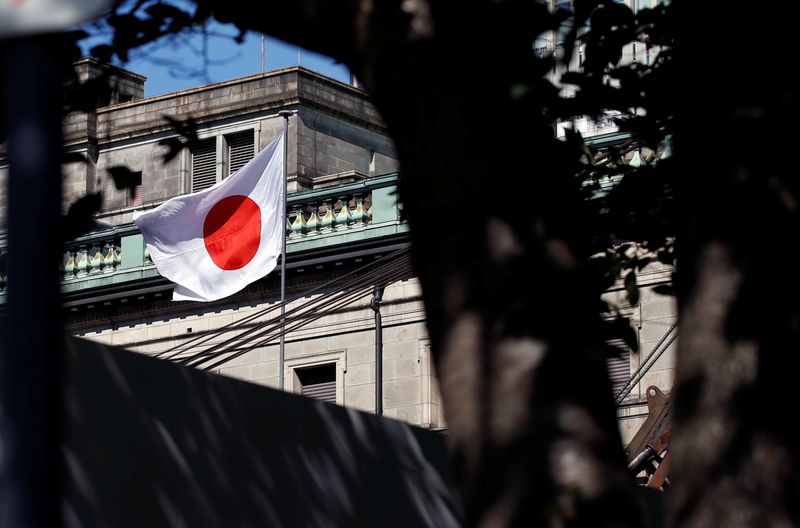By Leika Kihara
TOKYO (Reuters) - The Bank of Japan is set to keep monetary policy steady next week, as receding fears of a disorderly Brexit and signs of progress in U.S.-China trade talks take some pressure off the central bank to use its dwindling ammunition to underpin growth.
BOJ officials also expect the government's fiscal spending package to offer a significant boost to the economy when public works projects roll out next year, said sources familiar with the central bank's thinking.
A decision to stand pat would put the Japanese central bank in line with the U.S. Federal Reserve and the European Central Bank, which have both signaled that monetary policy will be in a holding pattern for the time being.
But the receding overseas risks offer little respite for the BOJ, as a recent slew of weak domestic data cast doubt over its view that robust domestic demand will continue to offset weak exports and help sustain Japan's recovery.
The BOJ may offer a bleaker view on factory output than in October and warn of the temporary impact October's sales tax hike may have on domestic demand, the sources said.
But it is likely to roughly maintain its view that Japan's economy continues to expand moderately as a trend, blaming the weakness in output on typhoons that disrupted deliveries of supplies, they said.
"There are some signs of weakness in Japan's economy, but overseas risks are receding somewhat and capital expenditure remains firm," said one of the sources.
"There's no major change to the BOJ's baseline scenario of a moderate economic expansion," the source said on condition of anonymity, a view echoed by two other sources.
In its assessment made in October, the BOJ said factory output is flat and domestic demand is increasing.
BOJ Deputy Governor Masayoshi Amamiya used a more cautious language on Thursday, saying that output was "weak" and domestic demand could temporarily soften.
At its two-day rate review ending on Dec. 19, the BOJ is set to keep its short-term interest rate target at -0.1% and a pledge to guide 10-year government bond yields around 0%.
It is also seen maintaining a guidance that commits to keeping rates at current low levels, or even cut them, until risks threatening achievement of its 2% price goal subside.
The BOJ has escalated its warning on the chance of further easing since July, as the bitter U.S.-China trade war and soft global demand jolted markets and hit Japanese exports.
But recent signs of de-escalation in the trade war and more stable markets have made BOJ policymakers confident that they do not need to dip into their tool-kit, at least for now.
While BOJ Governor Haruhiko Kuroda has repeatedly voiced readiness to easing further, many analysts say the hurdle for action is high given the strain prolonged ultra-low rates is inflicting on financial institutions.
"Now is the time to carefully watch how the mix of fiscal and monetary (stimulus) measures affect the economy," Deputy Governor Amamiya said on Thursday, suggesting that no immediate monetary easing was forthcoming.
Japan's economy expanded an annualized 1.8% in the third quarter on resilient domestic demand and business spending.
But factory output posted its largest fall in two years in October and big manufacturers' business sentiment sank to a near seven-year low in the fourth quarter, underscoring the fragile state of Japan's recovery.
Many analysts expect the economy to have contracted in the current quarter, as the October sales tax hike cools consumption.
